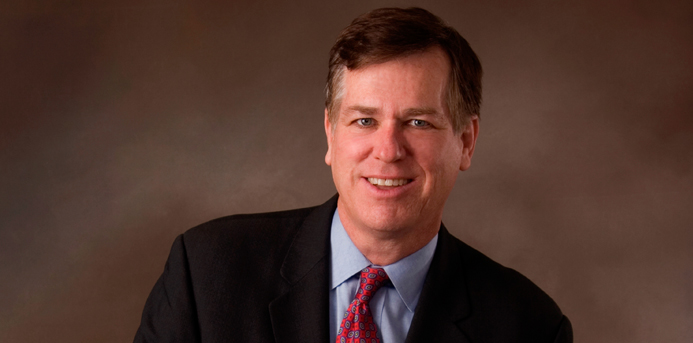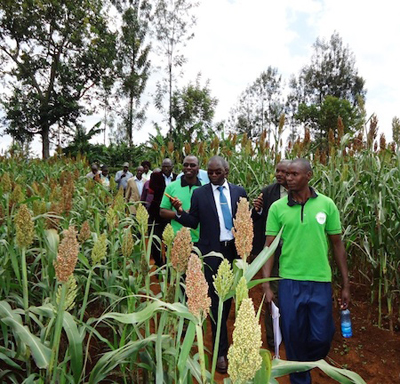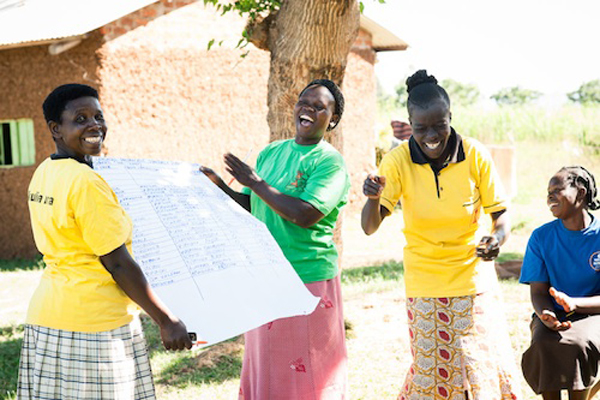By focusing on values and leadership, Wilmette father of five Harry Kraemer quickly rose through the management ranks of Baxter International to ultimately serve as Chairman and CEO.
He retired from Baxter 10 years ago to become both a managing partner at private-equity firm Madison Dearborn Partners and professor at Northwestern University’s Kellogg School of Business, where he teaches growing numbers of MBA students about values-based leadership.
His lectures so inspire the Kellogg students that they convinced Kraemer to write “From Values To Action: The Four Principles of Values-Based Leadership.” Kraemer decided that all proceeds from the book and related lectures and seminars would benefit the nonprofit One Acre Fund, founded by his ’06 Kellogg student Andrew Youn to help African subsistence farmers lift themselves out of poverty and hunger.
Kraemer’s message and One Acre Fund relationship has created a powerful virtuous circle of successful human development. He lives his life focusing on the values and activities about which he is most passionate. This influences future leaders and grows a successful nonprofit model, while Kraemer’s success further grows his influence, producing additional opportunities to share his values-based message. Win for Kraemer/win for those who learn from him/win for the world.
In brief, Kraemer teaches that the four most essential principles for aspiring leaders are:
- Self Reflection
- Balance and Perspective
- True Self Confidence
- Genuine Humility
By regularly referring to these principles, individuals not only develop into their best selves, but also inspire others to do the same thing.
To help promote a crowdsourced online fundraiser hosted by the Skoll Foundation for the One Acre Fund, Kraemer sat down for this Q&A with Make It Better.
Make It Better: Which of the four principles is the most difficult and why?
Kraemer: Self-reflection is the most difficult principle for most people, because our world moves so fast. There is so much to do; we feel like we need to be accessible 24 hours a day. People confuse activity and productivity!
But, if we’re going to do anything, we need to slow down, turn off the noise, think about what our true purpose is. It’s better to say, “Wait a minute, what are my priorities?” To figure this out, you need to be self-reflective.
Most people have trouble taking the time to be self-reflective. Fortunately this is not so true for me, because I started going to annual Jesuit retreats when I was 22. I try to schedule 11 hours of reflection time per week—including prayer and time with my wife, Julie. If someone told me that I was going to die in five days, I would be OK, because of how I live my life.
What about work-life balance?
The better phrase is “life balance,” not work-life balance. Why wouldn’t you want to fill all your life and your work with the things that fulfill and balance you?
In your book, you reference that annual silent weekend retreat with your father-in-law, and other things that imply your life is a faith-filled journey. What is your best advice for those who hope to be successful in business while honoring a spiritual call?
Many good people see themselves as spiritual, but believe they have to separate their faith and work lives. My view is, if you are faithful and this is an important part of who you are, why would you separate this? Why wouldn’t you bring your whole self to work?
Even better, when you do share your whole self— your humanity, strengths, weaknesses—people can better relate to you. Leadership is the ability to influence people. If they can’t relate to you, how can they be led by you?
Why did you choose One Acre Fund as the beneficiary of all proceeds from your Values-Based Leadership development efforts?
I chose it not only because it was founded by one of my students, but because it works so well. It’s simple, scalable, sustainable, and it teaches people to fish, rather than giving them a fish.
Eight years ago there was one employee. Now over 1,800 former subsistence farmers are employees with laptops, each managing 100 to 150 farms. This means over 200,000 one-acre family farms are improved. Because those families average four to five children each, over 1 million children have already been helped too.
Please watch this 60-second video to understand how the One Acre Fund model works:



